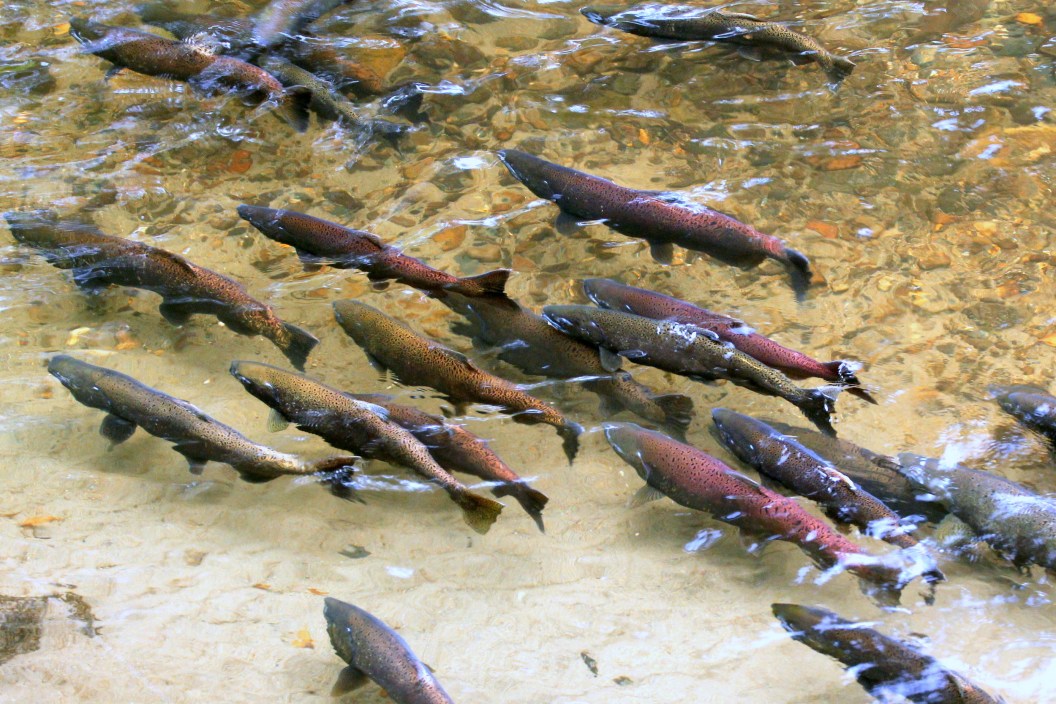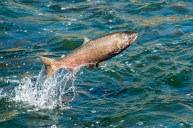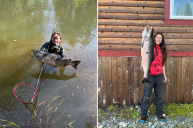A Washington-based conservation group filed a petition in January urging federal protection for Alaska king salmon, also called chinook. The group, Wild Fish Conservancy, wants the legendary species of salmon to receive Endangered Species Act (ESA) protections.
King salmon have been struggling throughout Alaska for years. The 2023 Yukon River king salmon run was less than a fifth of what it was two decades ago, with only an estimated 58,500 king salmon making it upriver. Climate change and warming river and ocean temperatures are in part to blame, as well as an overactive pollock industry whose trawlers have decimated several species of fish deemed "bycatch." In its press release, Wild Fish Conservancy also cites extractive industries, competition from hatchery fish, and sport fishing as threats to king salmon.
While state-level measures have already been taken to bolster the dwindling populations of kings—with closures and strict limits on commercial and subsistence harvests in various areas of the state—Wild Fish Conservancy calls for ESA protections for multiple populations of king salmon in Southeast Alaska, Southwest Alaska, and Cook Inlet. If king salmon populations are listed under ESA protections, it would become illegal to import, export, or kill king salmon, with the aim of protecting the species from extinction.
However, Doug Vincent-Land, commissioner of the Alaska Department Fish and Game, told Alaska Public Media (APM) that despite the increasingly low population of king salmon, the species "are still not facing a serious risk of extinction."
"We think that none of these stocks are threatened with extinction today or threatened with extinction in the foreseeable future, so we're going to work to oppose this," Vincent-Lang said. "This [petition for ESA protections] has a real impact coming our way, if it's granted."
Wild Fish Conservancy has already gained critics from Alaska politicians, fishermen, and conservation groups after a separate lawsuit that it filed caused the closure of an iconic Southeast Alaska salmon fishery for the summer of 2023. Wild Fish Conservancy had filed the lawsuit to protect endangered orcas that were feeding off some of the salmon harvested by Southeast Alaska troll fishermen. Unlike trawlers or net fishermen, trollers typically fish alone or with a deckhand and catch salmon one at a time on individual hooks. A long-term closing of the salmon fishery is seen as likely to devastate the fishing economy.
After the orca lawsuit, SalmonState—a Juneau-based conservation group that has worked to protect Alaska salmon from mining and trawling—issued a statement condemning Wild Fish Conservancy's actions and calling the Southeast trollers the "poster child for sustainable fishing."
"As a wild salmon-focused environmental organization, SalmonState condemns the Wild Fish Conservancy's misguided, irresponsible litigation [...]. This is an abuse of the Endangered Species Act by out-of-touch, ideological, serial litigants."
The executive director of SalmonState expressed similar feelings on Wild Fish Conservancy's latest petition. Tim Bristol told APM, "It's infuriating and it's depressing. [...] They're singling out, probably, the one thing that's easiest to single out: the directed harvest of salmon. But to think that's the root cause of the problem is not a responsible, reasonable or mature approach to dealing with declines in chinook populations."
Wild Fish Conservancy's petition will undergo a 90-day review period. If the federal government determines that the petition presents substantial information to list kings, a yearlong review will be launched before a decision is made.
READ MORE: Salmon Fisheries Disasters Declared Across the US




